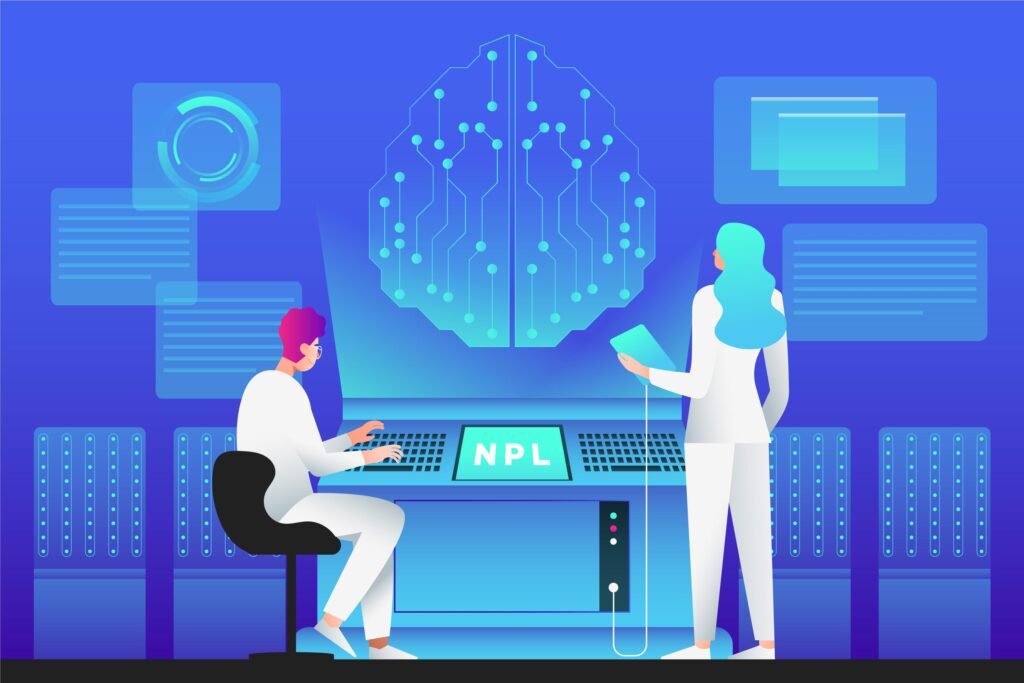Introduction:
Artificial intelligence technology is slowly and gradually entering the EHR software market and is changing the way providers work with patients and records. With the influx of AI in EHRs, these systems become more user-friendly and more powerful including the use of decision support, analytics, and automation. This shift not only increases the effectiveness of healthcare practices but also positively improves patient’s health which reveals the advancements of AI in the futuristic EHR Software.
AI Technologies in EHR Software
Some of the most utilized technologies in EHR software have been defined, and how they are enhancing and revolutionizing the world of healthcare. Machine Learning and Predictive Analytics are in focus, as they deal with huge volumes of patient data to generate prognoses and recommend actions. One of the primary advantages of EHR is the ability to attune to patients at the highest risk before the risk materializes into a full-blown problem This technology enables this process by keeping care providers informed of the patients’ conditions, enabling them to offer preventative care before a condition manifests itself fully.
NLP is a feature that is added onto EHR as it allows the system to comprehend and analyze unstructure data like the doctor’s commentaries and patient Feedback. By using NLP, embedde free-text entries can be more easily analyze in such a way that increases concomitant data accuracy and comprehensiveness. This results in improved decision-making and turn, patient care, which is the major strength of EHRs.
RPA simplifies the work within the EHRs performing the administrative tasks. Due to taking over some tasks such as entry of data or fixing appointments, the personnel in healthcare facilities can spend more time with the patients. Not only does this increase efficiency but it also helps eradicate the probability of human error in the delivery of health care services.
AI-Driven Innovations in EHR Software
Advanced technologies such as AI are now properly expanding the possibilities of software and its functions.
Predictive Analytics for Patient Outcomes
Predictive analytics is the most impactful AI implementation in EHR software. AI, through decision-making based on patients’ records, can predict possible health complications and consequences. These characteristics make it possible for healthcare providers to practice preventive medicine, to design individualized as well as cost-effective treatment strategies, and thus enhance the quality of patient care. For example, the status of select patients using the process of data mining can predict patients’ likely to be vulnerable to chronic diseases which could be prevente through improved health status.
Personalized Medicine and Treatment Plans
AI is also advancing in the field of health, particularly in the development of specific treatment methods, namely, individualized medicine. AI integrated with EHR software helps to make recommendations by considering patients’ genotypes, tasks, and historical records. Such an advancement makes it possible to provide the necessary treatment more efficiently and adapt to the client’s characteristics, thus improving the accuracy of treatment processes.
AI for Improved Clinical Documentation
Advanced communication tools with artificial intelligence are rapidly changing the process of creating clinical notes in the EHR. The creation of transcriptions and other records is automatic, and this frees healthcare professionals from the time-consuming tasks of data entry, thus expanding their ability to spend time with patients. This innovation also enhances the accuracy and completeness of the medical record compared to the traditional method.
The Future Outlook for AI in EHR Software
Indeed, the development of AI in EHR software is bright and with further advances in technologies can bring even more benefits to the healthcare system. Some trends are likely to be exhibit as AI technology advances as highlight next.
Enhanced Predictive Capabilities
AI will continue to improve in terms of analysis and, therefore, will provide even greater accuracy in terms of patient prognosis. Future EHRs will harness superior algorithms to produce the unsought to guide the healthcare provider’s decision-making process and enhance patient outcomes.
Integration with Emerging Technologies
AI will continue to interrelate with other related technologies like wearable and IoT. This integration will make it possible for EHR systems to capture information from other systems and make it easier to manage patient’s health information for better care.
Advanced Automation and Efficiency
Subsequent future Electronic Health Records Systems will experience more enhanced automation of these tasks with less focus on the administrative aspect and more on WIS. The current processes that take time will still be trample by AI, for example, automated diagnosis and treatment recommendations will be perform by AI leaving the health professionals to work on what they can manually do for the patients.
Improved Patient Interaction
AI will improve patient communication through naturally developed health apps and engaged communication processes. Such innovations will enhance the patient’s health management, appointment bookings, and easy access to information as flow in the improvement of overall healthcare.
Conclusion:
Artificial intelligence is changing EHR software and the way health care is being delivere. AI has helped EHR systems by refining the use of such techniques as predictive analytics, personalized medicine, and automation techniques. Such initiatives indicate that a smarter and more effective future of health care is emerging as a result of mHealth innovations for improving patient care, increasing the efficiency of the work processes, and providing a better understanding of health outcomes.



More Stories
Top PCD Pharma Franchise Companies in Bihar – Join the Best
Natural vs. Synthetic Estrogen Therapy: What’s Best for You?
Panathur: Perfect Your Smile with Teen Invisalign Today!